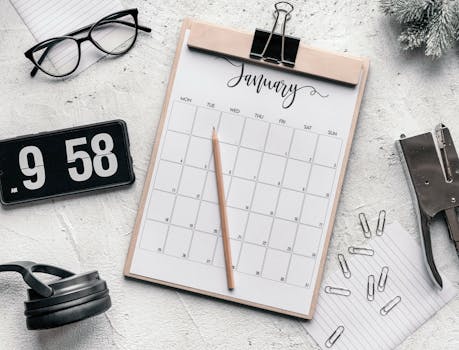Embracing a Balanced Lifestyle: Tips for Wellness and Happiness
Takeaways:
- Prioritize self-care and mindfulness to improve mental health.
- Create a balanced daily routine that incorporates work, relaxation, and exercise.
- Build strong relationships and community connections for enhanced happiness.
In today’s fast-paced world, finding balance in our lives can often feel like an uphill battle. Between work pressures, family responsibilities, and the constant influx of information from technology, it’s easy to lose sight of what truly matters. However, cultivating a balanced lifestyle is essential for our well-being and happiness. This article explores practical tips and strategies to help you achieve a harmonious life.
Understanding Lifestyle Balance
The Importance of a Balanced Lifestyle
A balanced lifestyle is one that promotes physical, mental, and emotional well-being. It’s about finding harmony between work, leisure, relationships, and personal growth. When our lives are balanced, we experience less stress, greater happiness, and improved health outcomes.
Signs of an Unbalanced Lifestyle
Recognizing the signs of an unbalanced lifestyle is the first step toward achieving equilibrium. Common indicators include:
- Chronic stress or anxiety
- Physical health issues such as fatigue or weight gain
- Feelings of loneliness or isolation
- Neglecting personal interests or hobbies
Setting Goals for Balance
Creating specific, measurable goals is crucial for achieving a balanced lifestyle. Consider what areas of your life require more attention and set realistic goals to address them. Whether it’s dedicating time to exercise, improving your diet, or nurturing relationships, goal-setting provides a clear path to balance.
Creating a Wellness Routine
Incorporating Physical Activity

Prioritizing Nutrition
A well-balanced diet fuels your body and mind. Focus on incorporating whole foods, such as fruits, vegetables, whole grains, and lean proteins. Meal planning and prepping can help you stay on track and make healthier choices.
Practicing Mindfulness
Mindfulness techniques, such as meditation and deep-breathing exercises, can significantly reduce stress and improve mental clarity. Set aside time each day to practice mindfulness, which can lead to a more peaceful and balanced life.
Enhancing Mental Well-Being
Building Strong Relationships

Engaging in Hobbies
Hobbies provide a creative outlet and a break from daily routines. Whether it’s painting, gardening, or playing a musical instrument, engaging in activities you love can enhance your overall happiness and satisfaction.
Seeking Professional Help
Sometimes, achieving balance requires professional support. Don’t hesitate to seek therapy or counseling if you’re struggling with mental health issues. Professionals can provide valuable tools and insights to help you navigate life’s challenges.
Boosting Productivity and Focus
Creating a Structured Schedule

Implementing Time Management Techniques
Adopting time management techniques, such as the Pomodoro Technique or time-blocking, can improve productivity. These methods encourage focused work sessions followed by short breaks, enhancing concentration and reducing burnout.
Limiting Distractions
In our digital age, distractions are everywhere. Limit social media usage and create a dedicated workspace to minimize interruptions. Establish boundaries to protect your focus and productivity.
Fostering Personal Growth
Embracing Lifelong Learning

Setting Personal Development Goals
Establish goals for personal growth, such as improving communication skills or practicing gratitude. Regularly assess your progress and adjust your goals as needed to ensure continuous development.
Practicing Self-Reflection
Self-reflection allows you to evaluate your experiences and feelings. Take time to journal or meditate on your thoughts, helping you better understand yourself and your needs, ultimately leading to a more balanced life.
Conclusion

FAQs
What is a balanced lifestyle?

How can I improve my work-life balance?
Improving work-life balance can be achieved by setting clear boundaries between work and personal time, prioritizing self-care, and scheduling regular leisure activities to recharge and relax.
What are some effective self-care practices?
Effective self-care practices include regular exercise, maintaining a healthy diet, getting adequate sleep, practicing mindfulness, and nurturing relationships with friends and family.
Where can I find resources to learn more about lifestyle balance?
Resources such as books, online courses, and wellness blogs offer valuable insights into achieving a balanced lifestyle. Websites like MindBodyGreen, Healthline, and Psychology Today provide a wealth of information on wellness topics.
Sources:
- Healthline: Balanced Lifestyle
- MindBodyGreen: How to Create a Balanced Lifestyle
- Psychology Today: What is a Balanced Lifestyle?




